Scientific Board
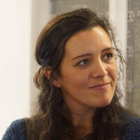
Marianna Marcella Bolognesi
Senior assistant professor (fixed-term). Marianna Bolognesi’s research focuses on lexical semantics and multimodal communication, and in particular on the relation between language and thought, and on the semantic representation of word meaning in mind. Currently she is working on the representation and processing of abstract concepts (e.g., "excellence", "democracy", "joy", that is, concepts denoting intangible entities) and on the role of metaphor and metonymy in the process of conceptual abstraction. She uses experimental methods that bridge psychological investigation with computational (corpus-driven) modelling. Dr Bolognesi collaborates with various international institutions. Among them, she collaborates with the Creative Multilingualism group at the University of Oxford, where she worked for 2 years (2017-2019) and with the Metaphor Lab Amsterdam, where she worked for two years (2015-2017) with an EU Marie S. Curie fellowship. Here she still coordinates the research area on Metaphor and Multimodality.
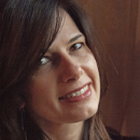
Claudia Borghetti
Claudia Borghetti has been Research Fellow in Language Learning and Teaching since 2017. She researches on intercultural language education, Study Abroad and multilingualism, teaching L2 Italian, and (academic) writing. Between 2012 and 2015, Claudia was the project manager of the European project IEREST (Intercultural Education Resources for Erasmus Students and their Teachers). She is involved in other projects focusing on intercultural language education (RICH-ED, TICKET, UNICORN), internationalisation in higher education (ATIAH), and writing. Claudia is a member of the management committee of the International Association for Languages and Intercultural Communication (IALIC).
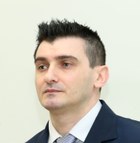
Carmelo Caruso
Carmelo Caruso graduated in Economics and then in Computer Science. He worked nearly 10 years in Prometeia S.p.A. on various projects with regard to Data ETL (extraction, transformation and loading) and business reporting. Since 2009, in Alma Mater Studiorum, he has been involved in different projects with regard to data analysis, data management and the implementation of web based data repository (CMS).
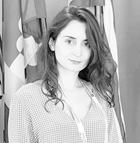
Claudia Roberta Combei
Claudia Roberta Combei holds a PhD in Linguistics from the University of Pisa, where she specialized in corpus linguistics, second language acquisition and phonetics. She defended a doctoral dissertation on human perception and computational processing of foreign-accented speech. From 2018 she has worked at the University of Bologna, first as a Post-doctoral researcher in Political Communication and as a Teaching assistant in Linguistics and currently as a Research laboratory assistant and a Subject expert ("Cultrice della materia") at the Department of Modern Languages, Literatures and Cultures. Claudia Roberta Combei adopts corpus linguistics and usage-based approaches in her research, combining computational, quantitative and qualitative techniques. Some of her recent publications include articles on political and media discourse, phonetics and phonology and second language acquisition. She is a member of the editorial board of John Benjamins Publishing Bibliography of Metaphor and Metonymy (MetBib).
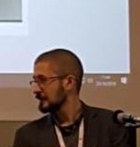
Eugenio Maggi
First class Bachelor Degree in Foreign Languages and Literatures at the University of Pavia in 2002 and doctorate in Spanish Literature at the University of Pavia, 2002-2005. Contract professor in Spanish Language and Linguistics at the University of Pavia, 2005-2008. Lecturer in Spanish Literature at the University of Bologna since October 2007; Senior Lecturer since October 2010. Associate professor since December 2019. Member of the projects Prolope (Universitat Autònoma de Barcelona) and "Max Aub y the confrontaciones de la memoria histórica" (Universitat de València-Generalitat Valenciana). Member of the editorial boards of the magazines Anuario Lope de Vega (Universitat Autònoma de Barcelona), Creneida (Universidad de Córdoba) and Diablotexto (Universidad de Valencia) and member of the Studies Center on the Spanish Eighteenth Century.
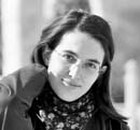
Francesca Masini
Francesca Masini is Associate Professor of Linguistics at the University of Bologna since 2014. Her research revolves around how meaning is packaged into linguistic structures, with special focus on concept-naming strategies, reference construction, non-literal meanings and emergent grammar. She works primarily within constructionist approaches, combining usage-based, quantitative and typological methods. She is Editor-in-Chief of the journal Constructions and Frames, Associate Editor of the Oxford Encyclopedia of Morphology and member of the Permanent Committee of the Mediterranean Morphology Meetings (MMM). She was awarded the National Award for Scientific Popularization 2017 (Humanities Area) for Tutto ciò che hai sempre voluto sapere sul linguaggio e sulle lingue (with Nicola Grandi) and is co-founder of Linguisticamente, the first Italian website for the popularization of linguistics.
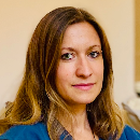
Caterina Mauri
Researcher in Linguistics at the University of Pavia from 2010 to 2016, she is Associate Professor at the University of Bologna since 2016. Since 2020 she coordinates the Program in Languages, Markets and Cultures of Asia and Mediterranean Africa and is member of the University CVRA (Area 10). She carries out her research in the field of language typology, grammaticalization and spoken language analysis, applying a ‘converging evidence’ methodology integrating the three dimensions of variation. She is coordinator of the SIR project LEAdhoC: Linguistic expression of ad hoc categories and of the KIParla corpus of spoken Italian. Editor of several volumes and special issues, author of two monographs and numerous articles in international journals, she received the ALT Greenberg Award 2009 and collaborates in national and international projects. Co-founder of the journal Linguistic Typology at the Crossroads, she participates in the editorial board of specialized series and journals.
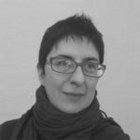
Monica Notari
Monica Notari is an accredited Psychosynthetic Counsellor and a member of the ICT staff at the Department of Modern Languages, Literatures and Cultures, University of Bologna. She has collaborated with a variety of public bodies, developing integrated platforms for e-learning, data-processing and inter-art projects. She has served on the board of the European/Canadian Project “PERFORMIGRATIONS; People Are the Territory”, focusing on change, diversity and mobility; as well as on the team of “ACUME – Approaching Cultural Memory, a European Thematic Network” addressing European shared and divided memories.
Her areas of interests include psychosynthesis counselling, cultural memory, media ecology, mobile technologies.
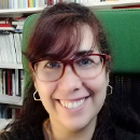
Ana Pano Alamán
Ana Pano Alamán, PhD, teaches Spanish language and linguistics at the University of Bologna, where she does research since 2004. She has held courses and seminars on the relationship between language and new technologies in different universities (Alcalá de Henares, Alicante, Copenhagen, Haute-Alsace, Cairo, UIMP). Her main research areas are the linguistic and pragmatic analysis of digital, media and political discourse in Spanish, the history of scientific and artistic translation and digital humanities. On these topics she has published several scientific articles and monographs. She is a member of international research projects on the study of language in the media (Lengua y Prensa, Metapres) and collaborates with the research group Multilingual lexicon of cultural heritage.She co-directs the journal Textos en Proceso (EDICE Program) and has been member of the Steering Committee of the Asociación Internacional de Estudios de Discurso y Sociedad.
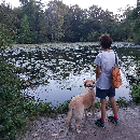
Monica Turci
Associate Professor at the University of Bologna since 2015, she got a PhD at the University of Kent (UK). Her research field is English linguistics and Cultural Studies. Her work focuses in stylistics and multimodality, particularly on the role of illustrations in literature. She has lectured in prestigious universities in the UK, Australia and India. Her research work has been published by internationally renowned publishers such as Routledge and Cambridge UP. Il 2016 she has organized the International conference "Kipling and Europe" in collaboration with the Kipling Society (London). She is member of the research group entitled "plurilingual lexical resources for cultural heritage". She coordinates the Department's Winter and Summer Schools.